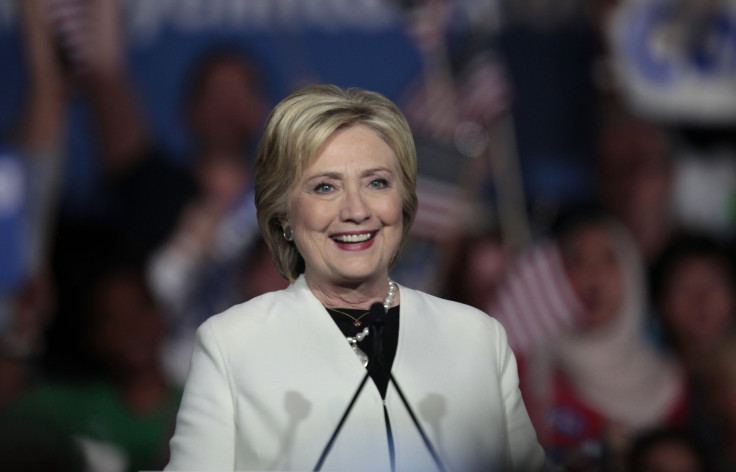Democratic Senators Take Issue With Hillary Clinton’s Portrayal Of Bailout Vote

Heading into crucial primaries in auto industry states such as Michigan and Ohio, Hillary Clinton in recent days has argued that Vermont Sen. Bernie Sanders’ 2009 vote to block the release of Wall Street bailout money proves he “was against the auto bailout” and that he voted “against the money that ended up saving the auto industry.” But other Democratic lawmakers who voted the same way as Sanders are challenging Clinton’s portrayal of that vote.
In interviews with International Business Times, two former Democratic senators took issue with the notion promoted by the former secretary of state that their vote to block Wall Street bailout money somehow put them at odds with the auto industry. Another Democratic senator’s office told IBT that the vote was about reining in the financial industry — not about opposing help for autoworkers.
In Clinton’s telling at debates and in a campaign ad, because a comparatively small portion of the Wall Street bailout money ended up being used to help automakers, those lawmakers who voted in 2009 to block some of the bailout money from being released were abandoning autoworkers and the domestic auto industry.
However, former North Dakota Sen. Byron Dorgan told IBT that the vote in question “was viewed by most as here’s what needs to be done to address the Wall Street issue” and that therefore he voted to block the money because “my view of it was if you don’t add some restrictions now, you’ll never add them, and so for the next year and a half Wall Street was able to work their will on a range of things that should have been done but were never done.”
Sanders has pointed to his separate vote on standalone auto bailout legislation as proof he supported help for the industry. Dorgan told IBT: “In the Senate you vote on a lot of things, and it’s very hard to take one piece and say alright here’s the narrative when there are often a number of different votes -- and sometimes a vote on something drags with it a lot of other issues that you might or might not support. Its really hard to take any particular vote and say OK this is it if there were other votes relating to the same issue in a different form.”
Asked if it would be fair to portray his vote as one cast against the auto industry, Dorgan declared: “That wouldn’t have been an accurate impression of my vote.”
A similar sentiment was expressed by Indiana’s former Democratic Sen. Evan Bayh — who also voted with Sanders to block the TARP money. He told IBT that while he did not recall the specific 2009 vote that Clinton is citing, his state is home to a large contingent of autoworkers and that he therefore does not believe he cast a vote that was designed to deny help to the auto industry.
“My state, Indiana, is a big auto state, and I was always very strongly in favor of helping the auto companies, and I’m glad we did,” said Bayh, who has endorsed Clinton’s presidential bid. “So I would find it to be very unlikely that I cast something that at the time was perceived as an anti-auto vote.”
He also pointed out his ties to the workers and industry that supported the bailout.
“The United Autoworkers were always some of my strongest supporters; I had good relations with the auto companies themselves,” he told IBT. “So it couldn’t have been primarily an up or down vote on the autos.”
In response to questions about Oregon Democratic Sen. Ron Wyden’s vote against the Wall Street bailout funds, the lawmaker’s staff told IBT that he did not view it as any kind of vote on the auto industry, but instead as a measure to rein in Wall Street. His office pointed to statements Wyden made supporting the standalone auto bailout measure Sanders supported, as well as a statement he released after voting with Sanders in 2009 to block the Wall Street bailout funds.
“Whether we have a Democrat or Republican in the White House, Congress has a sacred obligation to demand accountability, to write laws with some teeth in them, and to cease being a patsy to the executive branch,” he said after the 2009 vote. “Compensating — with hundreds of billions of taxpayer dollars — the very investment bankers who took these outrageous credit risks is no way to restore confidence in our markets or the federal government."
Wyden has also endorsed Clinton’s 2016 White House run.
© Copyright IBTimes 2025. All rights reserved.






















